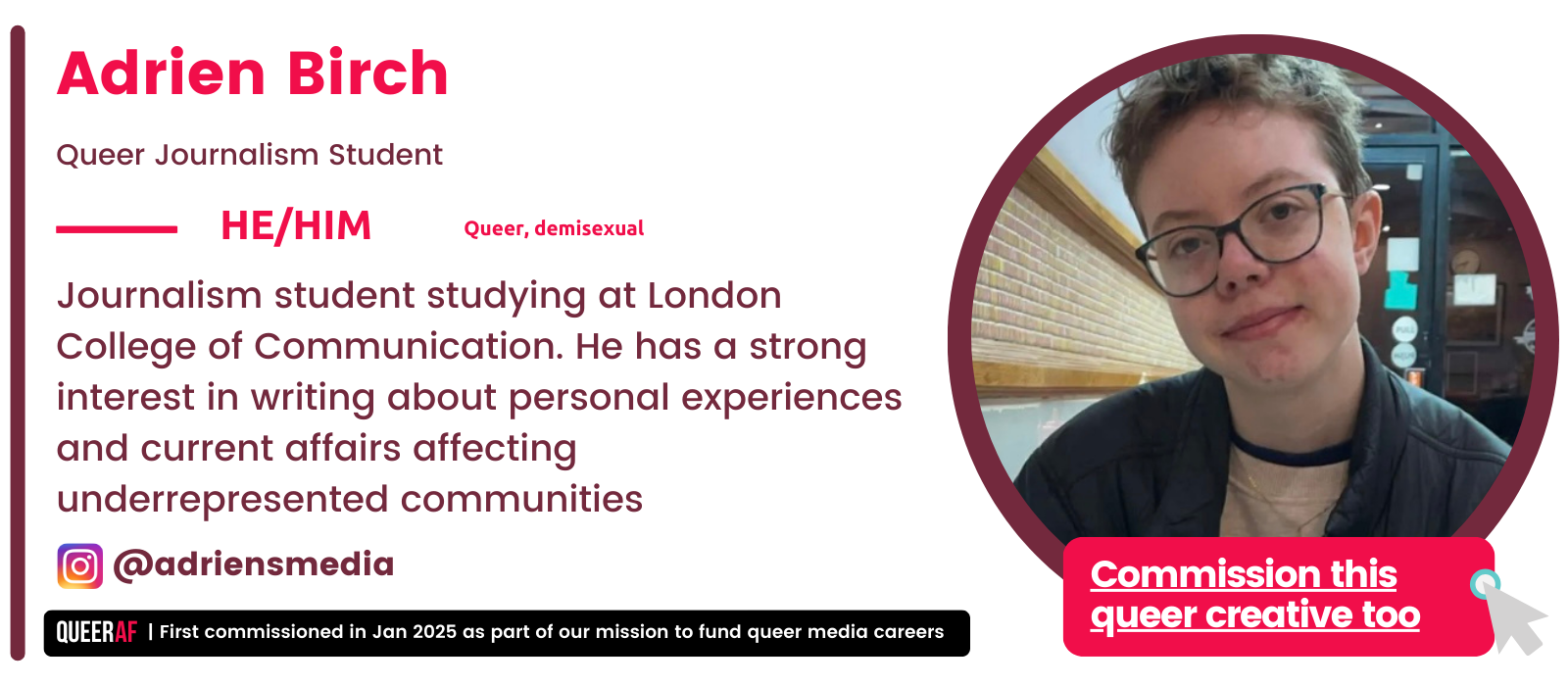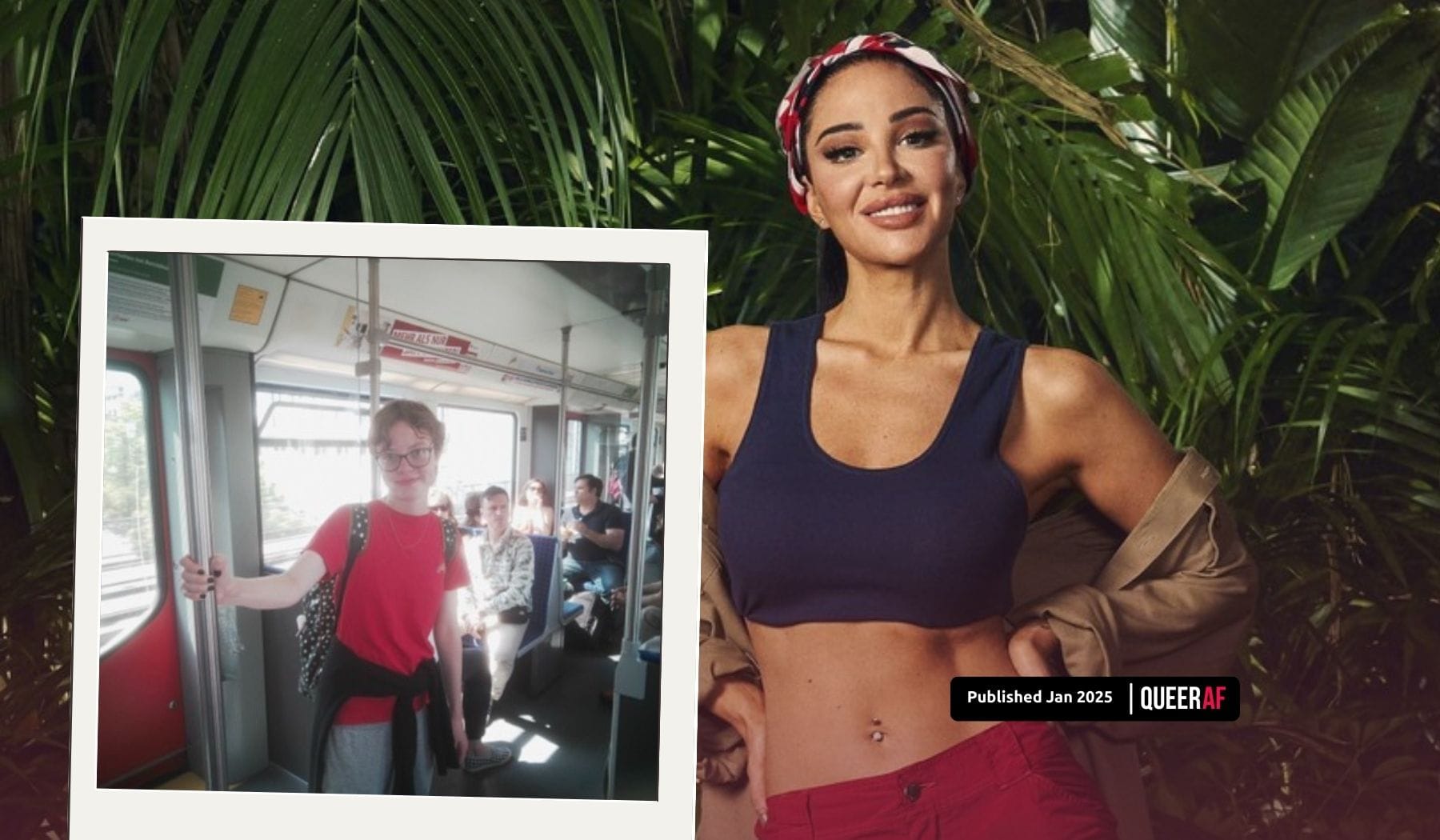
On 2024’s I’m A Celebrity Get Me Out Of Here singer Tulisa Contostavlos expressed that she identifies as demisexual. As well as sparking a social media conversation between viewers, it was an important moment for me.
“I’m proper guarded, I feel like I’m demisexual”, Tulisa told her fellow campmates, “I need to have a really close emotional bond with someone, I need actual depth”.
Like Tulisa, I am demisexual. Discovering that was a recent revelation for me - it’s an identity I didn’t even know existed until a year ago.
Tulisa’s outward expression of her demisexuality was incredibly meaningful to me - and to others, judging by the social media reaction. It’s refreshing to see it spoken about in mainstream media and have our experiences validated.
Demisexuality falls on the asexual spectrum. Demisexual people need an emotional connection with someone before we can feel sexually attracted to them.
For many people, being attracted to someone else is instant - it can happen in a moment, when they pass on the street or meet in a bar. For me and other demisexuals the process happens a lot slower and a lot less frequently.
I’ve had crushes on people in my life, but I can count them on one hand. Even then, those crushes were surface level, often on friends, and it took me a while to actually be physically attracted to them.
As I entered into my teenage years, I started to wonder if something was wrong with me. My friends would talk about crushes, dating and attraction in a way I couldn’t relate to. My mental health took a toll. I thought that something about me must be unlovable or undesirable.
Before I knew what being demisexual is, I decided to give dating apps a try, to see if I just needed to meet the “right” person. I’m certainly not alone, many people on the asexual spectrum experience a similar feeling - but it’s often fraught with shame, further confirming that dating is not a place that’s set up for demi folks.
I kept on using the apps, despite the fact I was bored and exhausted by it, hoping that if I found someone I could stop feeling left behind by my peers and feel better about myself.
It wasn’t until recently that I heard the word demisexual for the first time, on a podcast. I immediately felt connected to how the host described her experience of being demisexual.
I searched for more information and quickly felt a sense of relief - ‘this sounds like me’. I couldn’t believe there was a label for it and other people also experienced it.
I wasn’t broken or unattractive or unlovable. Quite the opposite. I wasn’t missing out or falling behind people of my age, I was just experiencing life differently. I finally had a label - and it was freeing.
It was like a weight was lifted from me and I could finally be comfortable with myself. I no longer needed to conform to the typical expectations of love or attraction.
I deleted the dating apps immediately.
Realising my identity was transformative. But I had to come to terms with the fact that being demisexual often means facing misunderstandings. People are unfamiliar with the term, and may also interpret lack of immediate attraction as indifference or lack of interest.
After Tulisa discussed her identity on national TV, there was a flurry of social media conversation.
The majority of it was positive, with fellow demisexuals praising her for being so open. However, others tried to claim that demisexuality doesn’t exist, or that Tulisa was just being an attention seeker.
This is something many demisexuals experience. But her admission granted me further permission not to pressure myself to 'try and catch up’.
I’m no longer rushing into milestones to try and check a box. Now I understand that being demisexual enriches the way I uniquely experience love and attraction.

A different kind of queer media
As a community interest company, we reinvest our funds into supporting queer creatives and creating LGBTQIA+ content that counts.
We're ad-free, investor-free, and totally independent - so members are critical to our sustainability.
So our ask to you is simple, if you find the newsletter valuable - pay for it. We know not everyone is in a position to pay for journalism, which is why we don't have a paywall.
But if you are, consider joining hundreds of QueerAF readers who keep this newsletter free for everyone, and get bonus perks back.










